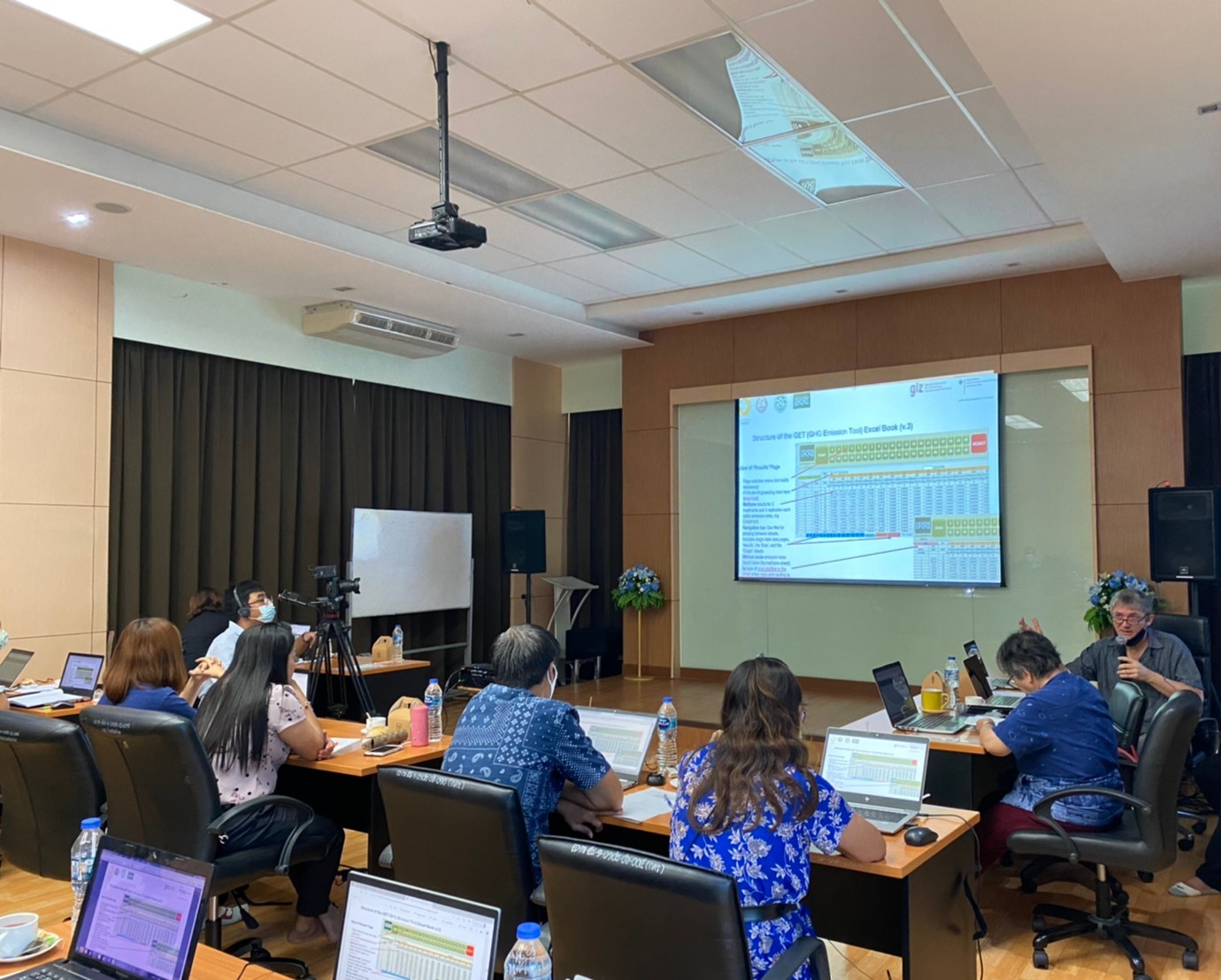The Thai Rice Department and the Thai German Climate Programme – Agriculture (TGCP-Agriculture) recently wrapped up online training on evaluating greenhouse gas (GHG) emissions following the so-called “Measurement, Reporting and Verification” (MRV) framework.
A total of 17 research officers from the central Rice Department and provincial research centres in Ayutthaya, Chainat, Pathum Thani, Suphanburi, Prachinburi,and Ubon Ratchathani participated in the two-month online training session designed to enhance their capacities in GHG emission measurement.

Dr. Nittaya Cha-un, an academic from the Joint Graduate School of Energy and Environment (JGSEE), King Mongkut’s University of Technology Thonburi, Dr Laddawan Kunnoot from the International Rice Research Institute (IRRI), and Dr Thomas Jaekel from the GIZ Agriculture and Food Cluster led the training and introduced a total of four training modules to the participants.

Introduced during the 13th Conference of the Parties (COP 13) in Bali, Indonesia, the MRV framework was adopted as the climate change and mitigation solution to transparent tracking of the GHG emission level and its impact at national and international levels.
The MRV framework calls on all sectors to respond to challenges facing GHG emission measurement, information reporting and verifying process.

The Thai Rice Department’s nationwide network of 28 rice research centres under the Division of Rice Research and Development has the potential to work on the emerging issue of climate change facing the agricultural sector, particularly in rice farming and production. Their main tasks involve conducting research aimed at increasing the value of rice production while reducing production costs and maintaining rice quality to meet international standards. Just as in other sectors, climate change has become an emerging issue that needs to be urgently addressed.
Since 2018, the TGCP-Agriculture project has been supporting the Rice Department to develop the capacities of research officers at headquarters as well as in provincial rice research centres. Several training modules on GHG emission measurement have been conducted. Learning materials on GHG emission measurement have also been developed to facilitate knowledge transfer for officials in the Rice Department. A handbook on gas sample collection in paddy fields and other multimedia knowledge management materials will also be produced and distributed by November this year.

Ms. Duangporn Vithoonjit, Agricultural Researcher Officer from Chainat Rice Research Centre said she was confident that her knowledge and skills can be applied in her work. The overall feedback from participants shows they are satisfied with the knowledge and skills learned from these training modules and are willing to participate in similar training sessions and others in the rice production field in the future.
Thanks to the training, Kanoknop Klinla-or, a researcher from the Division of Rice Research and Development, said he and his colleagues could adopt knowledge and skills learned from the training to conduct a report on GHG emission.
“Participating into the MRV training enables me to utilise knowledge on soil research learned at the university for working more effectively. Data collection and reporting on GHG emission can also be conducted more systematically. Such report can also be a guideline for data collection on GHG emission in the long run,” he said. ■
